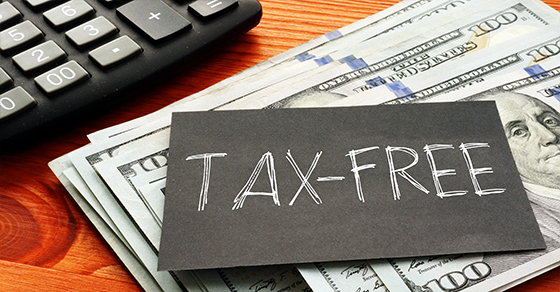6 key elements of a business budget
- ByPolk & Associates
- Sep, 11, 2024
- All News & Information
- Comments Off on 6 key elements of a business budget
Budgeting is essential for businesses. Here are six key elements of a budget and some best practices to consider: 1) Current overview; compose an up-to-date description of your business, its market and impactful economic factors. 2) Budget rationale; explain how the budget supports your mission, vision and goals. 3) Line items; be sure you’re including all expenditures. 4) Performance metrics; clarify how you’ll determine whether you’re making, breaking or beating the budget. 5) Supporting appendices; discuss whether to include additional information. 6) Executive summary; this brief introduction can prove helpful to internal users, as well as lenders and investors. Contact us for more info.
Navigating tax complexities: Craft partnership agreements and LLC operating agreements with precision
- ByPolk & Associates
- Sep, 11, 2024
- All News & Information
- Comments Off on Navigating tax complexities: Craft partnership agreements and LLC operating agreements with precision
Partnerships are often used for business activities. So are multi-member LLCs that are treated as partnerships for tax purposes. A major reason is that these entities offer federal income tax advantages, the most important of which is pass-through taxation. They also must follow special, sometimes complicated federal tax rules. A partnership is governed by a partnership agreement, which specifies the rights and obligations of the entity and its partners. Similarly, an LLC is governed by an operating agreement that lays out the rights and obligations of the entity and its members. These governing documents should address certain tax issues. Contact us to be involved in the creation process.
Understanding the $7,500 federal tax credit for buying an electric vehicle
- ByPolk & Associates
- Sep, 11, 2024
- All News & Information
- Comments Off on Understanding the $7,500 federal tax credit for buying an electric vehicle
An eligible taxpayer can claim a credit of up to $7,500 for a new clean vehicle. These are qualified plug-in electric vehicles (EVs) and fuel cell vehicles. An EV must meet certain requirements, and there are income limits to qualify. For example, the manufacturer suggested retail price can’t exceed $80,000 for vans, SUVs and pickups or $55,000 for other vehicles. To qualify for the credit, your modified adjusted gross income can’t exceed $300,000 for married joint filers, $225,000 for heads of households or $150,000 for others. Beginning in 2024, you can opt to transfer the credit to an eligible dealer when you buy, effectively reducing the vehicle’s purchase price by the credit amount.
6 tax-free income opportunities
- ByPolk & Associates
- Sep, 11, 2024
- All News & Information
- Comments Off on 6 tax-free income opportunities
There are ways to collect income and gains free from federal income tax. For example, if you receive a gift or inheritance, the amount generally isn’t taxable. And unlike withdrawals from traditional IRAs, qualified Roth IRA withdrawals are free from federal income tax. A qualified withdrawal is one taken after you reach age 59½ and have had a Roth IRA open for over five years, or you are disabled or deceased. Also, you can have a decent income and still owe 0% for long-term gains and dividends. In 2024, single taxpayers can have up to $47,025 in taxable income ($94,050 for married couples filing jointly) and be in the 0% bracket. Contact us. Advance planning may lead to better tax results.
It’s time for your small business to think about year-end tax planning
- ByPolk & Associates
- Sep, 11, 2024
- All News & Information
- Comments Off on It’s time for your small business to think about year-end tax planning
With Labor Day in the rearview mirror, it’s time to take proactive steps that may help lower your business’s taxes for 2024 and 2025. The strategy of deferring income and accelerating deductions to minimize taxes can be effective for most businesses, as is the approach of bunching deductible expenses into this year or next to maximize their tax value. Other ideas: Buy eligible equipment and place it in service by Dec. 31 to claim a Section 179 or 60% bonus depreciation deduction. Eligible businesses also may be able to defer income or accelerate deductions to keep income under certain thresholds to claim a qualified business income deduction. Contact us to customize a plan for your business.
Does your company have an EAP? If so, be mindful of compliance
- ByPolk & Associates
- Aug, 15, 2024
- All News & Information
- Comments Off on Does your company have an EAP? If so, be mindful of compliance
Many businesses have established employee assistance programs (EAPs) to help their workforces deal with mental health, substance abuse and financial challenges. Whether your company is considering an EAP, or you already offer one, among the most important factors to keep in mind is compliance. For example, one of these programs may be subject to ERISA if it’s established or maintained to provide ERISA-listed benefits, including medical services. Generally, an EAP providing mental health counseling, including help with substance abuse, will be subject to ERISA. You’ll also need to assess potential compliance issues under HIPAA and the ACA. Contact us for more information.
Strategic planning for businesses needs to include innovation
- ByPolk & Associates
- Aug, 15, 2024
- All News & Information
- Comments Off on Strategic planning for businesses needs to include innovation
In many industries, substantial growth or even just staying competitive calls for innovation. As your company looks to the future, be sure to create an environment where you and your employees can innovate. Developing an innovative business culture typically entails actively encouraging staff to come up with ideas and explore their feasibility without worrying about making mistakes. Consider holding regular brainstorming sessions where staff can suggest bold ideas in a safe space without fear of ridicule. When pursuing prospective innovations, it’s often helpful to assemble cross-functional teams that can cover more ground. Customer feedback can also be a good source of innovative concepts.
Understanding taxes on real estate gains
- ByPolk & Associates
- Aug, 15, 2024
- All News & Information
- Comments Off on Understanding taxes on real estate gains
Let’s say you own real estate that has been held for more than one year and is sold for a taxable gain. Perhaps the gain comes from indirect ownership of real estate via a pass-through entity such as an LLC, partnership or S corporation. You may expect to pay the standard 15% or 20% federal income tax rate that usually applies to long-term capital gains from assets held for more than a year. However, some real estate gains can be taxed at higher rates due to depreciation deductions. Some of the profit could be taxed at up to 25%, and you may also owe the 3.8% net investment income tax on some or all of the gain. The calculations are complex. We’ll handle them when we prepare your tax return.
How are Series EE savings bonds taxed?
- ByPolk & Associates
- Aug, 15, 2024
- All News & Information
- Comments Off on How are Series EE savings bonds taxed?
Many people own Series EE savings bonds that were purchased many years ago. Perhaps they were given as gifts or maybe you bought them yourself and filed them away. You may wonder: How is the interest taxed? EE bonds don’t pay interest currently. Instead, accrued interest is reflected in their redemption value. (Owners can elect to have interest taxed annually.) EE bond interest isn’t subject to state income tax. And using the money for higher education may keep you from paying federal income tax on it. Unfortunately, the law doesn’t allow for the tax-free buildup of interest to continue forever. When the bonds reach final maturity, they stop earning interest. Contact us with questions.
Closing a business involves a number of tax responsibilities
- ByPolk & Associates
- Aug, 15, 2024
- All News & Information
- Comments Off on Closing a business involves a number of tax responsibilities
While many facets of the economy have improved this year, the rising cost of living and other economic factors have caused many businesses to close their doors. If yours is among them, we can help you take care of various tax obligations. A business must file a final income tax return and some other related forms for the year it closes. If you have employees, you must pay them final compensation owed, make final federal tax deposits and report employment taxes. Failure to withhold or deposit employee income, Social Security and Medicare taxes can result in personal liability with the Trust Fund Recovery Penalty. There may be other tasks. Contact us with questions and to discuss these issues.










